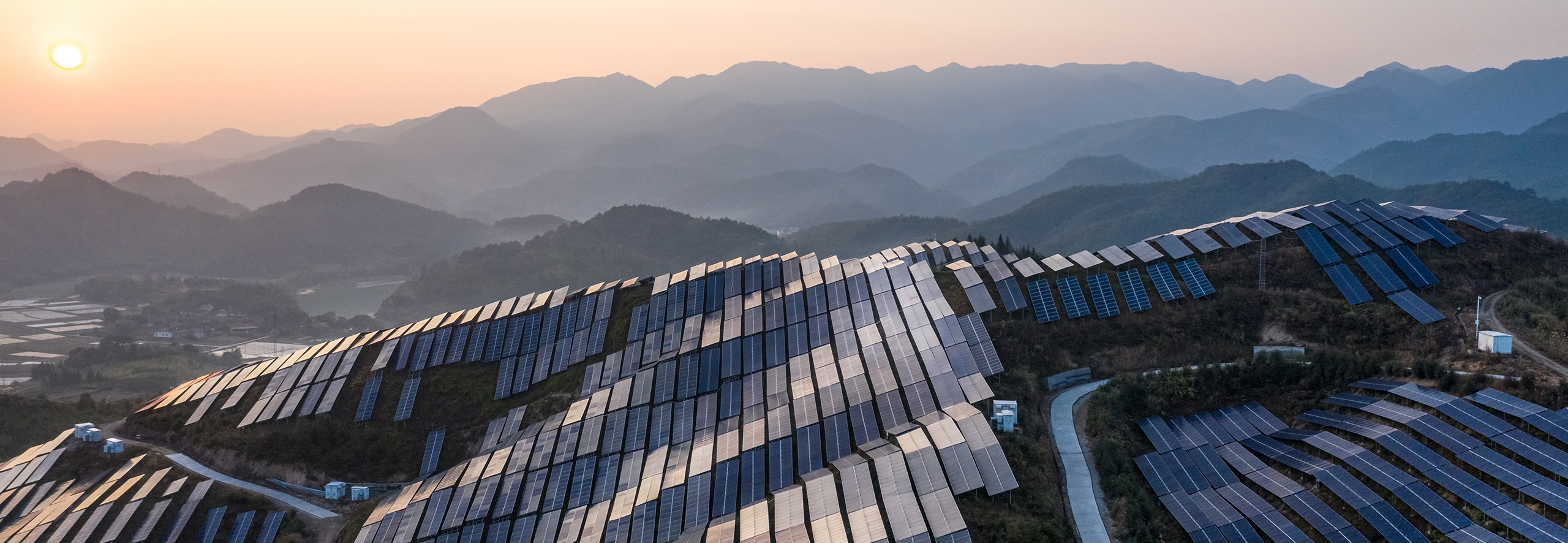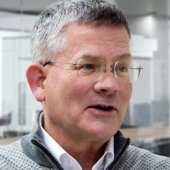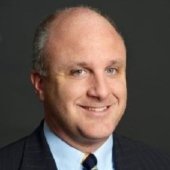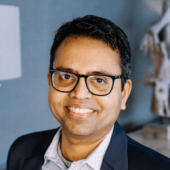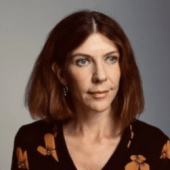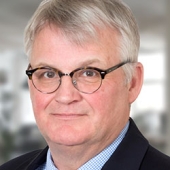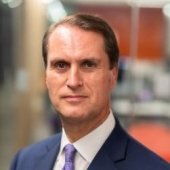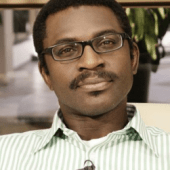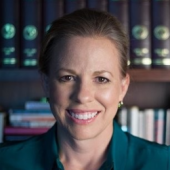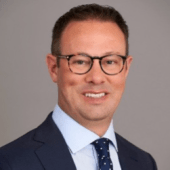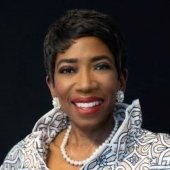Robert Half ESG lead: Sustainability will be a competitive advantage for companies that ‘get it’
IN BRIEF
- My advice to senior leaders: Stay focused on the end goal and don’t get too caught up in the ratings, rankings and reporting. We are hopeful that business leaders will stay focused on setting big, bold, ambitious goals and then figuring out the best ways to achieve them.
- Honestly, I don't think that corporate ESG initiatives will get us all the way there. We’re going to need an integrated approach to how we operate not just as businesses, but how we operate as societies. And I think business can take a leadership role.
- If your business can be focused on doing what's good for the bottom line, while also considering what's good for society and the planet overall, that's a huge opportunity. That’s a real competitive advantage for companies that get it.
Stephanie Dolmat is Senior Director, ESG, for Robert Half where she collaborates across the company in demonstrating all the ways Robert Half operates as a responsible business. “That includes how we’re fostering diversity, equity and inclusion with our employees, in our supply chain, and with our clients; how we’re being responsible environmental stewards; and how we treat people in all our company interactions, including keeping in mind their fundamental human rights,” she says. Joe Kornik, VISION by Protiviti’s Editor-in-Chief, sat down with Dolmat to discuss the future of sustainability and her role as senior director of ESG for Robert Half.
Kornik: ESG has become a front-burner issue for most companies worldwide, and clearly, I think, it will be even more important in the future. How did we get here?
Dolmat: ESG—Environmental, Social and Governance—is just the latest in a string of different names for this idea of doing the right thing for people, communities and the planet. Whether it's been called “corporate social responsibility” or “sustainability” or “corporate citizenship,” the concepts have been around for decades. ESG is about doing the responsible thing across the entire business: it’s all the different ways a company can impact society and the different ways society can impact a company. And, as you indicated, it’s more popular than ever. One of the bigger changes we’ve seen in this area has been the increase in the demand for transparency. Everybody is asking questions, and we have all these new ratings and rankings so companies can compare where they score in relation to each other. But I wouldn't necessarily say that it has resulted in material change. Just because companies are being more transparent doesn't necessarily mean they’re making meaningful changes. Especially right now, I think it’s really important for business leaders to stay focused on the biggest things they want to accomplish.
Kornik: What should business leaders, ultimately, be focused on?
Dolmat: The big picture. I would advise business leaders to stay focused on the forest instead of the trees, which seems like an apt metaphor here. It’s easy to get caught up in all the noise surrounding ESG, but true, meaningful impact will only occur if leaders remain focused on the larger, societal challenges we’re all facing—the pandemic, the climate crisis, the list goes on and on. If they remain focused on those bigger issues, they can then think about where their businesses can have the most impact, and where they could align their business strategy to help solve some of the big issues. So that would be my advice to senior leadership: Stay focused on the end goal and don’t get too caught up in the ratings, rankings and reporting, although they’re important, of course. But our world needs business leaders focused on setting big, bold, ambitious goals and then figuring out the best ways to achieve them.
Kornik: Speaking of big goals, what aspects of ESG do you think will emerge as the most important in the future?
Dolmat: ESG is really dynamic and the focus at any given time will vary depending on what's happening in the world—like when a global pandemic suddenly breaks out that will surely change the sustainability priorities of any company. That being said, we are all in a rapidly changing world, particularly from a climate perspective. No country, company or individual is going to be untouched by this climate crisis. And it’s going to play out differently in various industries, but we cannot underestimate the migratory pressures that are going to happen because of climate change. In the most heavily impacted areas, where will those people live? What jobs are they going to have? This starts with climate, but really it becomes a global human rights issue. All of this is so interconnected, so I think it is hard to say what aspect of ESG will be the most important in the future. I do know there are many people trying to figure out how we create a viable future on a livable planet, where people have access to basic, fundamental needs like food, shelter, water and breathable air. And, honestly, I don't think that corporate ESG initiatives will get us all the way there. We’re going to need an integrated approach to how we operate not just as businesses, but how we operate as societies. And I think business can take a leadership role; there are many private companies with very innovative solutions, but governments need to support that innovation and incentivize it when necessary.
Kornik: Overall, how do you think companies are doing with ESG today, and what’s your outlook moving forward?
Dolmat: I would say it’s a bit of a mixed bag. Different companies are at different levels of ESG maturity; some companies have been integrating ESG tenets for a long time. Other companies are just starting out and are trying to understand how and where they can make the most impact. And then many companies—probably most—are somewhere in between. The proliferation of sustainability jobs would indicate, certainly, that there's a huge shift taking place in how companies are thinking about ESG. My hope is that it’s for the right reasons and not just a company trying to look like it’s doing the right thing. In the future, I would hope that we’ll be much further along, that more companies will see the value in ESG and sustainability. If your business model can be focused on doing what's good for the bottom line, and also what's good for society and the planet overall, well, that's a huge opportunity. We know people want to work with and work for companies that share their values. That’s a real competitive advantage for companies that see that value.
Kornik: Let’s shift gears a bit and talk about Robert Half. How do you view your role, and can you talk about ESG at Robert Half?
Dolmat: So, I think my role, and others like it, is really about understanding the entire business inside and out and discovering ways different parts of the business can collaborate to achieve the best outcomes. That includes how we’re fostering diversity, equity and inclusion with our employees, in our supply chain, and with our clients; how we’re being responsible environmental stewards; and how we treat people in all our company interactions, including keeping in mind their fundamental human rights. As far as the business overall, ESG is not new to Robert Half. We’re a people-centered business focused on ethics; whether on the talent solutions or consulting side, ESG is core to our company values today and will be in the future.
Kornik: If I asked you to think a little further out, say 2035; where do you think we’ll be in terms of ESG?
Dolmat: I really liked what Asif Sidiq, WarnerMedia’s head of Diversity, Equity and Inclusion, said in his interview with VISION by Protiviti: “If we do this correctly, eventually we won’t need people like me anymore.” I feel the same way. If we think of a future where humans have risen to the challenge and successfully managed to shift our economy away from being based on non-renewable fossil fuels, that would be a great future to imagine. And do I think there will still be a role for people focused on how doing the right thing aligns to a company’s overall business strategy? Yes, probably. But I think the biggest question is, will we get there in time? There are things that give me hope: California recently had a day when it produced enough renewable energy to meet 100% of its needs, and we've seen similar things in Germany. Car companies are going all electric by 2030. These systemic shifts are happening relatively quickly, and they’re happening, often, because businesses are leading the way. That’s encouraging.
honestly, I don't think that corporate ESG initiatives will get us all the way there. We’re going to need an integrated approach to how we operate not just as businesses, but how we operate as societies.



